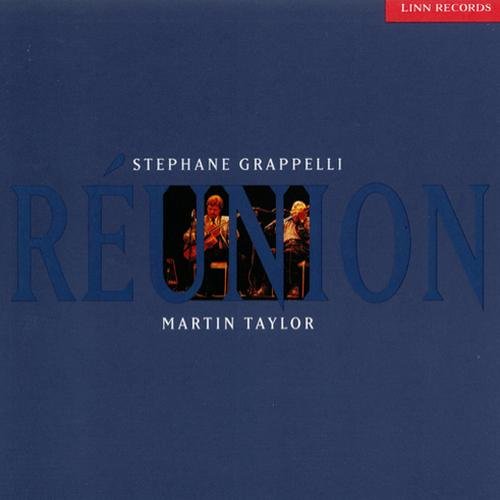Artist:
The Jimmy Owens-Kenny Barron Quintet
Title:
You Had Better Listen
Year Of Release:
2001
Label:
Collectables[COL-CD-6170]
Genre:
Jazz, Hard Bop
Quality:
FLAC (tracks + .cue,log,scans) | MP3/320 kbps
Total Time: 35:20
Total Size: 217 MB(+3%) | 84 MB(+3%)
WebSite:
Album Preview
Tracklist01. You Had Better Listen [08:30]
02. The Night We Called It A Day [05:09]
03. Gichi [06:34]
04. Love Where Are You [06:57]
05. Carolina John [08:07]
personnel : Kenny Barron - Piano
Rudy Collins - Drums
Bennie Maupin - Flute, Guest Artist, Sax (Tenor)
Jimmy Owens - Composer, Flugelhorn, Trumpet
Frederick Waits - Drums
Chris White - Bass
Kenny Barron and Jimmy Owens' first recording was a solid debut. The exciting title cut, "You Had Better Listen," composed by Jimmy Owens, is good, basic, uptempo jazz, nothing fancy, no frills. The Jimmy Owens-Kenny Barron Quintet doesn't condescend like some jazz artists tend to do; casuals can groove, relate, nod their heads in approval and feel righteous about it. Owens plays some beautiful trumpet scales, while Barron keeps busy banging chord progressions. The other members of the quintet are Benny Maupin (tenor sax, flute), Chris White (bass), Freddie Waits (drums on tracks one, two and four), and Rudy Collins (drums on tracks three through five). Owens' sparkling flügelhorn spices "The Night We Call It a Day." Barron composed the strutting "Gichi," Maupin and Owens blowing as one introduces the bebopper, White's bass is cool and steady, and Collins' drum work is incredibly creative. Owens comes in later and spits a series of darting trumpet hits before rejoining Maupin near the conclusion for a cutting contest. Moody and occasionally happy, but mostly maudlin, best describes "Love, Where Are You," an exercise in cool; Owens gives a trumpet clinic, while White's walking basslines titillate the ears. "Carolina John," is Maupin's best showcase, his flute work is understated throughout the LP, but he plays a mad tenor on this cut, his attention-getting solo is followed by some remarkable horn work by Owens.~Andrew Hamilton
Exact Audio Copy V1.0 beta 1 from 15. November 2010
EAC extraction logfile from 18. May 2011, 23:14
Jimmy Owens & Kenny Barron / You Had Better Listen
Used drive : TSSTcorpCDDVDW SH-S203N Adapter: 0 ID: 2
Read mode : Secure
Utilize accurate stream : Yes
Defeat audio cache : Yes
Make use of C2 pointers : No
Read offset correction : 6
Overread into Lead-In and Lead-Out : No
Fill up missing offset samples with silence : Yes
Delete leading and trailing silent blocks : No
Null samples used in CRC calculations : Yes
Used interface : Installed external ASPI interface
Gap handling : Appended to previous track
Used output format : User Defined Encoder
Selected bitrate : 768 kBit/s
Quality : High
Add ID3 tag : No
Command line compressor : C:\Program Files\Exact Audio Copy-NEW\Flac\flac.exe
Additional command line options : -8 -V -T "ARTIST=%a" -T "TITLE=%t" -T "ALBUM=%g" -T "DATE=%y" -T "TRACKNUMBER=%n" -T "TOTALTRACKS=%x" -T "GENRE=%m" -T "ALBUMARTIST=%v" -T "ALBUM ARTIST=%v" -T "COMMENT=EAC V1.01b1, Secure Mode, Test & Copy, AccurateRip, FL
TOC of the extracted CD
Track | Start | Length | Start sector | End sector
---------------------------------------------------------
1 | 0:00.00 | 8:32.54 | 0 | 38453
2 | 8:32.54 | 5:11.51 | 38454 | 61829
3 | 13:44.30 | 6:36.41 | 61830 | 91570
4 | 20:20.71 | 6:59.66 | 91571 | 123061
5 | 27:20.62 | 8:07.72 | 123062 | 159658
Track 1
Filename J:\New Rips\Jimmy Owens & Kenny Barron - You Had Better Listen (2001) [FLAC]\01 - You Had Better Listen.wav
Pre-gap length 0:00:02.00
Peak level 100.0 %
Extraction speed 1.9 X
Track quality 99.9 %
Test CRC EA03FB85
Copy CRC EA03FB85
Track not present in AccurateRip database
Copy OK
Track 2
Filename J:\New Rips\Jimmy Owens & Kenny Barron - You Had Better Listen (2001) [FLAC]\02 - The Night We Called It A Day.wav
Pre-gap length 0:00:02.00
Peak level 100.0 %
Extraction speed 2.3 X
Track quality 100.0 %
Test CRC 28DE0C44
Copy CRC 28DE0C44
Track not present in AccurateRip database
Copy OK
Track 3
Filename J:\New Rips\Jimmy Owens & Kenny Barron - You Had Better Listen (2001) [FLAC]\03 - Gichi.wav
Pre-gap length 0:00:02.01
Peak level 100.0 %
Extraction speed 2.6 X
Track quality 100.0 %
Test CRC DAAF82D2
Copy CRC DAAF82D2
Track not present in AccurateRip database
Copy OK
Track 4
Filename J:\New Rips\Jimmy Owens & Kenny Barron - You Had Better Listen (2001) [FLAC]\04 - Love Where Are You.wav
Pre-gap length 0:00:02.01
Peak level 100.0 %
Extraction speed 2.9 X
Track quality 100.0 %
Test CRC 7ECA67EE
Copy CRC 7ECA67EE
Track not present in AccurateRip database
Copy OK
Track 5
Filename J:\New Rips\Jimmy Owens & Kenny Barron - You Had Better Listen (2001) [FLAC]\05 - Carolina John.wav
Pre-gap length 0:00:02.00
Peak level 100.0 %
Extraction speed 3.2 X
Track quality 100.0 %
Test CRC 3B2EAE2D
Copy CRC 3B2EAE2D
Track not present in AccurateRip database
Copy OK
None of the tracks are present in the AccurateRip database
No errors occurred
End of status report
==== Log checksum 802AAA6CC77DB587959D7D8913A82CD497D31402B73E4B84EF9D132E0CB5D0F5 ====
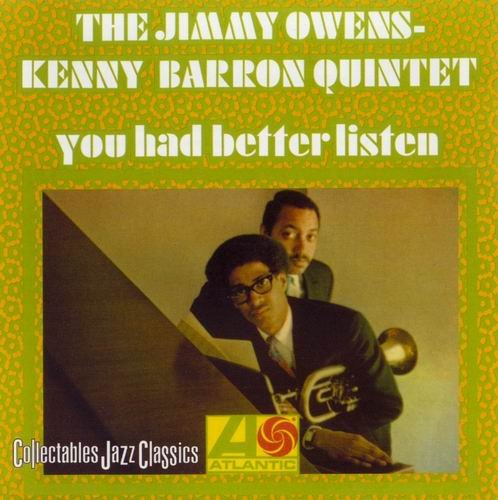
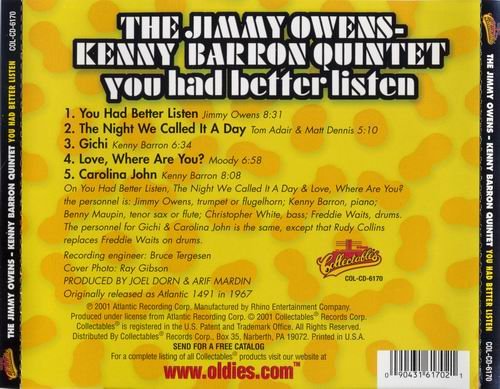



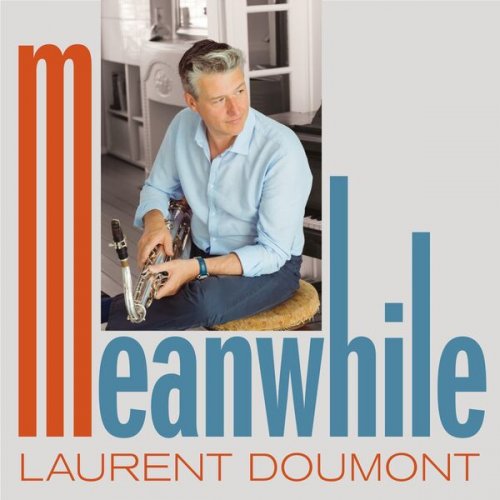
![Julian Lage - Scenes From Above (Japanese Edition Bonus Track) (2026) [SHM-CD] Julian Lage - Scenes From Above (Japanese Edition Bonus Track) (2026) [SHM-CD]](https://www.dibpic.com/uploads/posts/2026-02/1772029332_front.jpg)
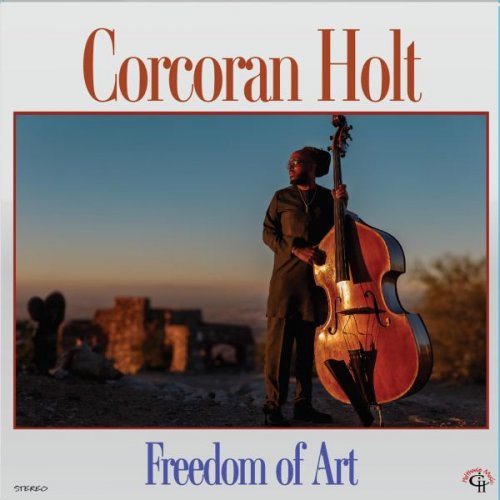
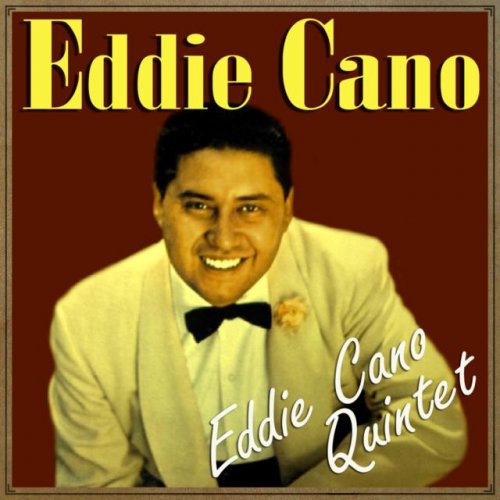

![Mark De Clive-Lowe, Andrea Lombardini and Tommaso Cappellato - Dreamweavers II (2026) [Hi-Res] Mark De Clive-Lowe, Andrea Lombardini and Tommaso Cappellato - Dreamweavers II (2026) [Hi-Res]](https://www.dibpic.com/uploads/posts/2026-02/1772112550_tl3tb7yl8u13z_600.jpg)
